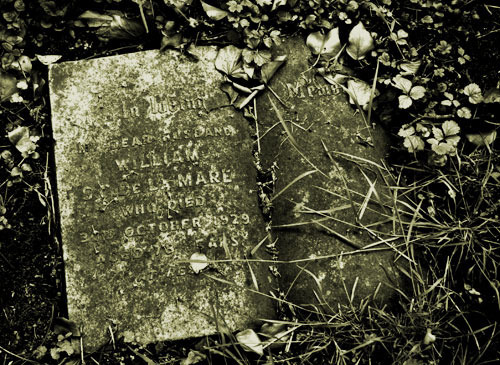Remittance Girl's Blog, page 22
June 10, 2013
Dear Mr. Banks, I’ll Miss You or #CultureShipName GSV Inconvenient Departures
One of my favourite authors died yesterday. Iain Banks, or Iain M Banks (the name he used for his sci-fi books) took his leave of us too soon, too young, with too many great ideas left unwritten.
He had a way of examining human issues by constructing stories like spectrum analyzers. Plots built to flay characters and force them to give up some very poignant truths. He once said that the genre of sci-fi examined how humans cope with change. And his particular brand of sci-fi often took humans to the outer reaches of change and beyond, to where they stopped being human as we know it and became something new.
I often think that writers either have your number or they don’t. At a certain level of proficiency, it becomes a matter of whether their voice has a timbre that reverberates for you or not. There are a lot of writers I respect, but few I love. Banks just always had the right frequency for me. Always sneaked through my critical barriers and buried himself in my brain.
The Wasp Factory, a literary novel, is probably his most famous book, but I always felt and he sometimes hinted that his sci-fi novels were really where he got to do what he wanted to do. If you’ve never read Banks, your missing out.
The Use of Weapons is probably the most eloquent interrogation of the ‘desire to win’ ever written. It examines violence and its insane escalation and takes it to a wry and absurd end. All violence is ultimately personal.
The Algebraist has probably haunted me the most vividly, just for lushness of imagery. Imagine existence as a member of a species that lives for eons swimming through the atmosphere of a gas giant? How does lifespan change the things we think are important to communicate with each other? What is existence if not the ability to communicate?
More recently, Surface Detail offers a phenomenal examination of the horror of the virtual.
I could mention The Culture, or the shipminds… a million other things…. there are too many things that Banks gave me, gave us, to list. But throughout everything he wrote, woven in, floating beneath the surface was always a fierce humanism. It was a rare and special type of mind: intensely kind and yet one that recognized and repeatedly condemned the evil of ignorance and stupidity.
I had drinks last night with someone who’d met up with Banks only last week. Said he was thinner and pale, but seemed in very good spirits and had a lot of energy. I know Banks wanted to see his last book published (it comes out very soon) and I’m so sorry that didn’t happen.
I’ve never cried at the death of a writer before. Perhaps because, somehow, I never felt the author’s company so abidingly and vividly as I read their books. But when you read a Banks novel, he’s always there, just at the corner of your reader’s eye. He never abandoned his readers to the void of the story. So, I have to believe that he’ll still be there, regardless of his death, when I go back to read his work again.
Perhaps, like some of the marvelous ship-minds he invented, Iain M. Banks will always be there for me, sending messages through the vastness of the universe, arriving on the shore of my mind, carrying insights to both the great and the small things about who we are, each time I open one of his works. I know he was an atheist who didn’t believe in an afterlife, but if anyone’s carbon atoms deserve to traverse the immensity of space, Iain Bank’s do.
Dear Mr. Banks, I will miss greatly and for a long, long time.


June 9, 2013
We’re Sorry. This Number Is No Longer In Service
 His thick, inked arm felt like a fleshy cage, trapping her in the bed. In earlier days, it would not have occurred to her to wonder, but age had made her more civil: how long would she have to lie there before it was polite to scramble out of the suffocating warmth of his embrace, get dressed and leave?
His thick, inked arm felt like a fleshy cage, trapping her in the bed. In earlier days, it would not have occurred to her to wonder, but age had made her more civil: how long would she have to lie there before it was polite to scramble out of the suffocating warmth of his embrace, get dressed and leave?
Social awkwardness made of her a badly tuned engine, lurching forward in fits and starts, and underneath it – the cause of engine failure – the tar pit of claustrophobia, forever bubbling thickly beneath the surface. The dark crimson and tepid beige of the room’s decor. The acidic recessed ceiling lights. The smell that screamed ‘this is a hotel’, overlaid with the scent of spermicide and latex and sex and sweat.
She could not stand him now. This kind, good-humoured man who had, with skill and admirable stamina, relieved her several times of the burden of a decade of abstinence. Now, in the airless aftermath, with a sore cunt and muscles reverberating from successive orgasms, she needed to be gone. Gone from him, from there, from the memory of being so exposed, so penetrated, so masked, so covered, so frozen and unmeltable.
She’d chosen him because he was so unavailable. Because they had so little in common. Because he had no tricks up his sleeve to turn her perverse wheels, no voice to reach past the tangle of razor wire. Because he had no way to touch her, and never would. She had chosen him because he had the wrong-shaped mind.
For all her care in choosing, there was flesh. Human heat, pores, the taste of saliva and come, breath on the back of her neck. Flesh, she had forgotten, had a terrible eloquence of its own. And even if it whispered all the wrong things, she could not be deaf to the cloying poignancy of human contact. She could only regret its waste.
In the interrupted dark of the back of the taxi, on her way home, it occurred to her that she had, perhaps years ago, passed into a desert without even noticing it. All the tender, urgent desire she’d clutched to her chest for the man she could not have was an ornate and intricate mirage. Like the hallucinations the brain manufactures while you’re dying, to mitigate the trauma of mortality.
Whether she never fucked another man or fucked a hundred of them, whether she loved them or despised them, it would make no difference. The line was disconnected.


Critical Discourse: Erotica and Why We Can’t Get No Respect

*Warning: Public Spanking*
Back in early May, I wrote a post on why I felt having a ‘Best Male Erotica’ anthology was important to the genre as a whole. I said I felt that it was vital to the genre to have new, original male voices. It generated many thoughtful, interesting comments. One, however, stood out as unselfconsciously ironic.
Goodwriter
May 9, 2013 at 11:40 pmTry the new erotic romance WUTHERING NIGHTS, written by I.J. Miller, a male writer. It’s an erotic retelling of the Bronte classic Wuthering Heights.
I decided to ignore the fact that, considering the title and content of the post, the comment was a little comic. Since Wuthering Heights was originally written by a woman and erotic enough. I also decided to ignore what might be considered the rudeness of using my comment function for blatant sales promotion. Instead, I replied thus:
Wow, this is exactly NOT what I was hoping to engender in the erotica community. Because we so don’t need YET ANOTHER UNORIGINAL RETELLING of a classic tale with the sex dumped in. Wuthering Heights in its original form is an erotic masterpiece.
The commenter who I assume is in some way associated with the I.J. Miller, author of said ‘retelling’, responded:
Goodwriter
June 7, 2013 at 11:16 amSo sad that a fellow writer would label something an “unoriginal retelling” without having read the book. I’m sure you must really appreciate when people make judgments about you the same way.
I’m guessing Goodwriter and I.J. Miller may be one and the same person, since he took my criticism so personally. I never made a judgement about the writer at all. I made a judgement about what I didn’t think the genre required. Nonetheless, it would have been completely disingenuous to deny that I make judgements about the genre. I do, frequently. And so I responded:
I have no problem with doing so. I have a real ethical problem with retold, sexed up classics and particularly with Wuthering Heights because it is already overflowing eroticism. And if you haven’t noticed, I’m a VERY judgmental writer.
I do not give people cause to make those judgements about me, because I would never have the temerity to think that Ms Brontë needed retelling. The current postmodern fascination with recycling canonical literature disgusts me.
Still, I did feel that perhaps a longer explanation of why I disagreed with the practice of sexing-up classic literature was due and wrote a post about it. However, the commenter still felt the need to respond, and he did:
Goodwriter
June 9, 2013 at 11:06 amYou certainly do give people cause to see you as a sad jealous writer…
Right about now, it’s probably dawning on you why I put the warning at the top of this post. Yes, this is indeed a public spanking. Not of the commenter in particular, but of the level of discourse that pervades the erotica and erotic romance genre presently.
I have an opinion on certain literary practices; I’m entitled to hold that opinion and yet am very willing to hear rational, informed arguments to the contrary. What I am not entitled to do is personally attack a writer for indulging a practice I disagree with. There are quite a number of works within the erotica genre I find lacking in literary merit; I’ve also been harshly critical of certain types of formulaic erotic romance writing and some very narrow-focused types of fetish writing. But I never, ever attack the author personally. I critique the work, not the author. They are not one and the same anymore than a bad piece of plumbing is reflective of the personal character of the plumber.
Erotica writers, if you wish to be taken seriously within the literary community, please learn how to offer proper critique, not only to works, but to your fellow writers. Our inability to distinguish between our work and ourselves is professionally embarrassing. It makes us look bad, in a genre that already suffers greatly from a lack of literary respect.
* * Public Spanking Ends * *


June 7, 2013
My Problem with Sexed Up Classics
 I was recently taken to task by a commenter for being judgmental for replying that I didn’t want to read ‘yet another unoriginal retelling’ of a classic with the sex dumped in. This was in reference to recently produced and eroticised version of Wuthering Heights. This is the latest in a slew of sexed-up classics published in the last few years. There are a number of publishers releasing a whole raft of them.
I was recently taken to task by a commenter for being judgmental for replying that I didn’t want to read ‘yet another unoriginal retelling’ of a classic with the sex dumped in. This was in reference to recently produced and eroticised version of Wuthering Heights. This is the latest in a slew of sexed-up classics published in the last few years. There are a number of publishers releasing a whole raft of them.
The phenomenon of why books become classics and enter the canon in the first place is a very interesting one. I’m not going to address it here, because why certain texts become classics and who determines which texts deserve to be there is a cultural and social study in itself. This has been addressed by some of the most notable thinkers of the 20th Century.
Certainly, of more interest to me, because of my studies, is how eroticism has been written about through the ages. What choices and limitations authors practiced under in their times, and how they coped with those restrictions.
The particular book in question, in the comment, was Wuthering Heights. Wuthering Heights happens to be very dear to my heart for a number of reasons. To begin with, it has a strangely lopsided structure. It has two main characters, which was unusual for the time. And it continues to be, in my estimation, one of the most deeply erotic works ever written.
It’s not an easy book for modern readers to read, because the way Brontë used language is simply very different to the way we use it today. Admittedly, it’s not as hard to read as Chaucer or Shakespeare, but language does change with time and the very subtle ways in which we imply, hint, infer things have shifted radically. In any given time period, writers leave a lot out of their work; they make assumptions about what might seem obvious to a reader in their time. That also changes with the years. People don’t speak to each other in the same way as they did in 1850. So in the 21st Century, we are reading Wuthering Heights through something of a spiderweb of lost cultural nuance. Nonetheless, I believe one of the reasons it stands up so well, over 150 years later, is because the society Brontë is describing, the landscape, the atmosphere and the characters were probably quite strange, even in her time. In a way, Wuthering Heights is and has always been a piece of speculative fiction. (It is worth taking a look at a summary of the critical response to the novel when it came out – many contemporary critics found the language difficult as well)
Heathcliff is a particularly modern character. In the mid-19th Century, people didn’t often spend a lot of time obsessing about their identities in the way we do today. Usually, the main reason to ponder identity in those days revolved around inheritance, rather than our modern need to interrogate our ‘truths’. Yet both Emily and Charlotte Brontë do so; Jane Eyre is also very much a novel of identity. I’ve often wondered at the tremendous, subverted erotic tension that must have existed in the Brontë household, because both these women wrote about erotic desire in its most tempestuous and destructive form.
I first read Wuthering Heights at fourteen. Even then, I was perfectly aware of the sexual tension that electrifies the novel. By the time I read it again, at university, at the age of 23, I was fully capable of ‘filling in the unwritten’ eroticism in the novel.
Look, I’m a writer of erotic fiction, and you’d think I would be a staunch proponent of making ‘the implicit’ explicit. I’m not. I am first a writer and I honour the fact that, within the constraints of her time, Emily Brontë wrote as erotic a novel as she could. She used atmosphere, metaphor, dialogue, conflict and horror to eloquently paint a picture of an erotic desire so strong it survived past death. The eroticism is there, everywhere, in the text if readers would get off their cerebral asses and actively read the text. Just like in 1847, this is a novel where you, as the reader, are expected to use your very active imagination to make the implicit explicit.
Sexing up the classics, and especially this classic is, I believe, bad for our brains. In its original form, Wuthering Heights begs the modern reader to play ‘what if’ with their imagination. Time and cultural change challenge us to fill in the gaps of what could not be made explicit at the time. It exercises our erotic imaginations in a way that an explicit fuck scene never can.
Looking into the semi-opaque world of classic texts, and actively reading the eroticism into them as we read, is good for us. It keeps our minds fertile and questing. Reproducing those stories and adding in ten explicit sex scenes robs us of the opportunity to use our imaginative powers.
But more than all of that… what is it about us that we cannot value new stories? Are there no new stories left to tell? I don’t believe that.
Yes, I am a very judgmental writer. I don’t hide it and I don’t deny it. I think, if you are a REAL erotic fiction writer, you will find new stories to tell, not rehash old ones.


June 2, 2013
When I Am Laid In Earth, at Highgate
“When I am laid in earth
may my wrongs create
no trouble in thy breast.”

In the silence of dappled light,
the endless dead press against me,
lithe and soft-footed as hungry cats
at dinnertime.
Each headstone a mnemonic of life.
Some clearly written on stern granite:
father, mother, beloved son, wife, only brother
born and died and, often, some poignant detail
of how their measured time was spent.
Other engravings worn by the years
have liberated their owners from
the rigid boxes where life trapped them.
The coffin and the ravages of weather
finally set them free.
If ever in a moment of elation
or in the grip of carnal delight
I escaped the sentinel of mortality,
here in Highgate no longer.
Everywhere is evidence of
the inevitable end of our stories.
And if, in a flight of lightness
I fancied myself pure spirit,
here is proof of the lie;
If I denied my body, or some
forgotten lover refused it,
it will matter very little.
The hungry ivy will cover me,
The blind and questing roots
embrace me in slow, damp arms.
The earth will devour me,
with loving equanimity.
(title & quote taken from the opera ‘Dido and Aeneas’ by Purcell. Sung by Jessye Norman)


May 29, 2013
My Wanna Be Elsewhere Playlist
Rio de Mi Sevilla – Lole Y Manuel
When I Am Laid in Earth – Henry Purcell – Jessye Norman
Ostia (The Death of Passolini) – Coil
Sick, Sick, Sick – Queens of the Stoneage
Round Midnight – Julie London
Black Sun – Dead Can Dance
I Love the World – New Model Army
Gnossienne No. 1, 2, 3 - Erik Satie – Daniel Varsano
Blue Orchid – White Stripes
This Big Hush – Shriekback
Annachie Gordon – Loreena McKennitt
Down in the Park – Foo Fighters
Wax and Wane – Cocteau Twins
Folies D’Espagne – Marin Marais – Jordi Savali
Do You See What I See? – Hunters and Collectors
Por Primera Vez – Lole Y Manuel
Romance del Amargo – Camaron de la Isla
Throw Your Arms Around Me – Hunters and Collectors
Half Life – Sneaker Pimps
Bite the Hand that Feeds – NIN
Fantasia on a theme by Thomas Tallis – Vaughan Williams
Coming Undone – Korn
So Alive – Love & Rockets
Tyrant – The Bravery
Remedy – Seether
The Only Thing That Shines – Shriekback
Would I Lie to You – Eurythmics
Kiss The Girl – The Creatures
Seeing Out the Angel – Simple Minds
Teardrop – Massive Attack
Zombie – Cranberries
Fighter – Christina Aguilera
Black Hole Sun – Soundgarden
Motorcade – Magazine
Funeral March for Queen Mary – Henry Purcell
Shot by Both Sides – Magazine
Break Away – Big Pig
Love Me or Leave Me – Billie Holiday
Swallow It – Fad Gadget
Lacrimosa – Mozart
Sarabande – Handel
I’m Only Happy When It Rains – Garbage
Melt – Siouxsie & The Banshees
Creep – Radiohead
Spellbound – Siouxsie & The Banshees
Love Interruption – Jack White
Revelations – Audioslave
The Passenger – Iggy Pop
Chauffeur – Duran Duran


May 28, 2013
Sewn Up Tight

Photo by TheChristOff
Let us find dependable dependencies,
self-resourced and admirable,
worthy causes and homeless pets
and legally purchased sedation,
like adults do.
Let us need nothing:
not flesh, comfort or sanctuary.
Let us require no magic words
to make the days’ dawn rosy-hued
and the nights less solitary.
Let us sleep the sleep
of the sated and the smug.
Let us be sunny islands,
proud of our jaws set firm
in the face of the storm,
stony-faced against the tide
and efficient in the clean-up
of the aftermath.
And we shall owe no debt
of foul-tasting gratitude,
break our hearts against
no ancient stones.
We shall be entirely free
of everything but our solitude,
and lack for nothing.
May 26, 2013
Why don’t we do it in the road?
This deep, murky ocean of meaning we’ve poured on top of our simple need to continue the species. Our outrageous excess of drive. Thousands of years and a million stories to gild the lily of our animal nature. What a castle in the air we’ve created. What complex labyrinths we’ve constructed to keep sperm from meeting egg, or glorify it with ritual, codify it in law, raise it up to a fine art, to package it and sell it to each other as something extraordinary.
Why don’t we do it on YouTube?
And maybe that’s where all the disappointment comes from. That when it comes right down to it, all we really want is an orgasm and, once we’ve had it, for a blinding moment, we’re clear sighted and blank. Because that’s all the act truly merits: a sense of physical relief. And whether you got there by your own hand or by some clever little device, or by the expended energies of another, does it really matter? You’ve come. And so what? Time to eat and shit and sleep. All those other calls of nature. So one wonders why we are capable of being so rational about other urges and so pathetically irrational when it comes to this one?
Why don’t we do it on the page?
I know the biologists aren’t in possession of all the information that counts. And so I’m torn. I’m not as blindly immersed in the realm of fabula as you might think. There is a cold and rational side to my personality, a part that surveys the ridiculous complexity of our cultural constructions of sexuality and wonders why we’re such fucking hysterics about something so simple. I’ve never believed any god gave a flying fuck what you do with your dick. But I also know that this monstrous and intricate edifice we’ve built up around a physical urge is as curious, as beautiful as architecture or art or literature or music – all equally unnecessary to our survival and yet all deeply and compellingly meaningful to us.
Why don’t we do it more and think about it less?
All the prohibitions, the religious precepts, the social censures we’ve loaded onto our sexual drive and all the emotional baggage we’ve invested in it are entirely of our own making. But so is the whole web of things we call culture: language, laws, institutions, gender identities, hierarchies, roles, economies, concepts of beauty and ugliness, of honesty and deception. We are not born speaking, or with reason, or with the urge to create art, but with the capacity to do so. The possibilities of what we can do are inceptional and as much a part of nature as our instincts, as the hard-on you wake up with in the morning.
With the death of romanticism and modernism, writers have chosen to demystify sexuality. People complain that you can’t write about sex, but it’s not true. Contemporary literature, like all other mediums, is full of it. And in our time, we have rejected all the earlier restrictions we put on it. We’ve gone from thinking it was something sacred and veiled in mystery to something banal and marketable as product. Or, in literary fiction, it has become the meme for the stupid, pointless things we do. The self-centered way we work out the vacuousness of our identities.
There is no real difference between the frat boys taking turns banging away at some drunk girl’s ass on an amateur porn site to show what studs they are and the literary writer who uses sex to show how pathetically meaningless his character’s life actually is.
Why does it matter I think?
It doesn’t. I would not have felt at home in a world in which sex was always veiled in hypocrisy. And I don’t feel at home now. Like a lot of other people, I guess I thought that lifting the veil would allow us to situate our sexuality in aesthetically interesting places. In fact, lifting the veil has simply enabled it to be commoditized. Admittedly, sex was always a commodity, but never on such an industrial level.
We’re purging our world of meaning and putting quantifiable valuations on it instead. It’s a marketization of all our abstractions, especially aesthetic experiences. I’m too old to believe this is bad or good. It just is. We’ve changed.
But I can see that we are no less frightened. We’ve gone from fearing what God might think of our sex acts, to fearing that we, that they don’t come up to industry standards.
At least when sex was so shrouded in cultural and moral taboo, we could weight those prohibitions against our inner experiences of eroticism. Now I think we’ve decided that there is no real inner experience. That it is all just a figment of our historically burdened imagination and needs to be jettisoned. Certainly the amateur couples fucking on the internet are not burdened with that. They’re too busy ensuring the camera is focused and has a good angle. Certainly, the literary fiction writers are too busy insisting how empty it the act is. Certainly the erotic romance authors are too busy perpetuating product-placed, unattainable erotic ideals to sell more books with.
Some days I have the mental strength to insist that there is some middle way, between animal urge, sanctification and base economics, and that way is rich and nuanced and worthy of our consideration.
But not today. Today I’m tired.


May 25, 2013
A Quiet Revolution
 In the bed’s wasteland, I am set upon a mission.
In the bed’s wasteland, I am set upon a mission.
Once he’s shed his suit and his tie lies coiled like a dormant serpent on the floor, I engage him in the luxurious expenditure of his energies and, in doing so, deny the great machine its lifeblood.
He is unaware of my agenda. Caught up in the violence of his body’s hunger, his hands have slipped the wheel of industry and settled on my thighs, my hips, my breasts. I’ve trapped his fingers in the tangled web of my long dark hair.
After his eyes have regained their focus. After I’ve supped on the warm excess that fountained from his cock to land on his thigh, he gazes at me in hazy lassitude.
“I bet I can make you come again,” I say.
He smiles. “You think?”
“I do,” I say, ” Especially if I do this…”
The tip of my tongue chases sensation up the underside of his semi-erect shaft. My lips purse and suck-kiss the vulnerable spot that nestles beneath the head. Then, in an act of understated warfare, I cover him with my mouth and trap him in the vacuum of my intentions.
Every unit of energy I take from him denies the machine. Every thrust, every breathy gasp, every tense shuddering is an act of sabotage. It’s a very quiet, very underhanded sort of revolution.


May 24, 2013
In Praise of Flesh #FridayFlash
I kneel between his legs and slide up his body, smearing skin against skin. The sublime expanse of flesh, belly and chest, a warm
surfeit of animality, of temporality, of mortality.
The phrase ‘ashes to ashes, dust to dust’ has always made my panties wet.






